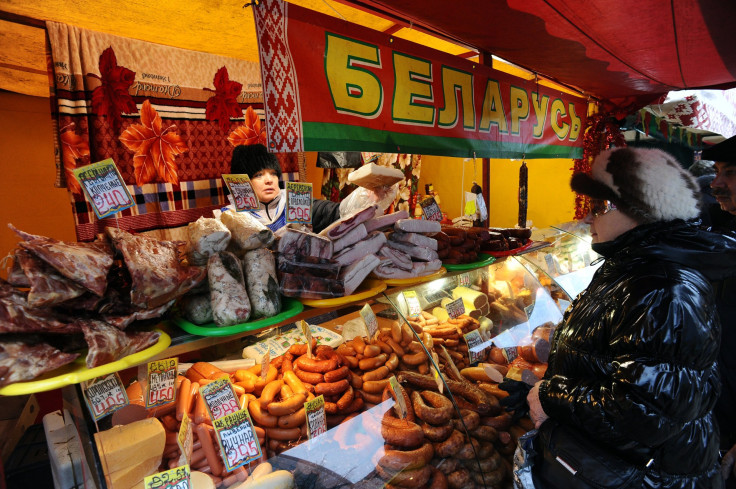Russia Starts Destroying Banned Western Imported Food As Putin’s Presidential Decree Comes Into Force

A decree signed by Russian President Vladimir Putin, ordering the destruction of all confiscated food products imported from the West, came into force Thursday. Russia imposed bans on food products imported from the European Union or the United States in 2014, responding to Western economic sanctions over its alleged involvement in the ongoing conflict in eastern Ukraine.
The first batches of banned imported food products are expected to be destroyed in the cities of Orenburg and St. Petersburg, while three trucks of nectarines are likely to be destroyed in another region, state-run Tass news agency reported.
“As many as 20 tons of cheese might be destroyed in Orenburg, and pork will be destroyed in St. Petersburg,” Yulia Melano, a spokeswoman for the Russian veterinary and phytosanitary control authority, called Rosselkhoznadzor, told Tass.
According to Rosselkhoznadzor, imported vegetables and fruits will be destroyed at dumps, whereas meat and milk products that are of high biological risks will be disposed by burning.
“I don’t think there will be a large volume (for destruction). I believe there will be hundreds of tons but no more than several hundred tons,” Sergei Dankvert, the head of Rosselkhoznadzor, told Tass, adding that the volume of banned food imports into Russia had declined tenfold after Putin signed the decree last month.
Although the destruction of banned Western food products was scheduled to begin Thursday, 114 tons of sanctioned pork was reportedly destroyed in the southern Russian city of Samara Monday. While customs documents suggested that the pork was of Brazilian origin, officials in the South American country did not confirm the legitimacy of the documentation.
Meanwhile, opponents of the government's decision to destroy banned Western food reportedly signed a petition calling for the decree to be revoked. They also argued that the food could be given to poor people, instead of being destroyed. The Russian government, however, contends that the move was triggered by the increasing number of smuggling cases.
Russia initially imposed the import ban on Western food products for a year, but later extended it until August 2016 after the U.S. and the EU recently introduced more sanctions against Moscow.
© Copyright IBTimes 2024. All rights reserved.






















